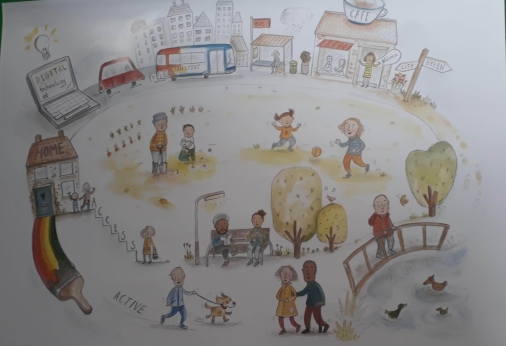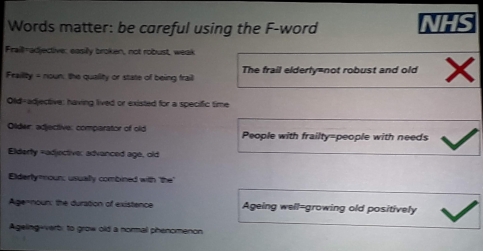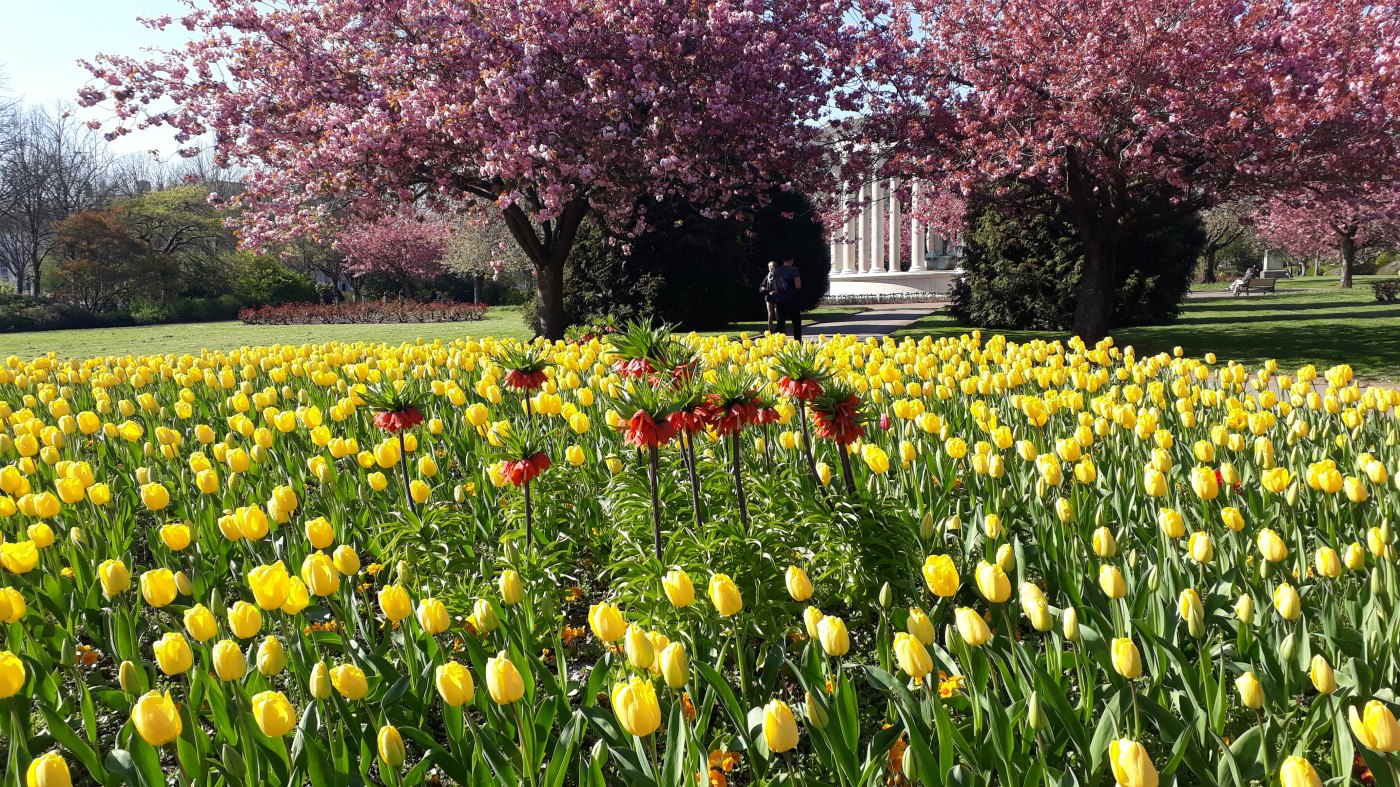Last week Jo, Michael and Vicki travelled to the beautiful city of Cardiff for the British Geriatric Society Spring Meeting armed with posters and a desire to share and learn.
We had a fabulous time, hugely aided by the friendly and collaborative atmosphere at the conference, the beautiful weather, the stunning flowers and the many stimulating and inspiring conversations. We also ate and slept really well – thank you Anatoni’s, Twenty Nine Park Place and Hotel Indigo – Cardiff certainly knows how to woo her visitors!
As non-members of the Society, Jo and Michael were really keen to understand more about the key issues facing older people’s health care but also to quietly observe. We were keen to absorb what excites and inspires the multi-professional BGS community… as they represent one of the key audiences we aim to engage with our research. Vicki, as a long-standing member, was the perfect host!
We were also there to present the findings from four of our recent and/or ongoing projects:
- Reducing length of hospital stay for older elective surgical inpatients
- The impact of robopets on the health and wellbeing of people living in care homes
- Improving the experience of care for people with dementia in hospital and
- Developing innovation through co-design
We used a variety of poster design approaches – always eager to experiment and get the most from the poster-presenting opportunity. Two of the posters, used the poster template developed by @better_posters – incorporating as many of the recommended features as possible within a portrait layout. Generally, we had really good feedback on the readability of the posters – although next time we might dedicate more space to the results and less to the background and methods.
Vicki’s poster featured the fabulous artwork of Lucy Evans – if you missed this poster at the conference – here’s a close up – all the discussions and themes of a workshop event depicted visually in a beautiful image.

We invited delegates to get in touch with us if they were interested in helping us to interpret the preliminary findings of our synthesis of qualitative and quantitative evidence of the experience of care of people with dementia in hospital. We are aware (from anecdotal discussions and from systematic searching of media reports) that many of the interventions being used in hospitals to improve the experience of care for people with dementia are not evaluated and reported in the research literature. We need to talk to people (like you!) who are working in older people’s healthcare to make sure that our findings are as useful as possible to people leading and innovating change.
If you have insight into improving the experience of care for people with dementia in hospital from the perspective of a patient, family carer or member of staff and would be interested in helping us make sense of the research findings we’d really like to hear from you – please do get in touch.
These are some of the things we’ll be taking away from our adventures in Cardiff…
- Words matter. Be careful using the F-word (frailty). And whilst ‘frailty’ may be necessary as a commissioning tool, ‘resilience’ and ‘vulnerability’ may be more useful when talking to patients and the public. With thanks to Martin Vernon and John Gladman.

- MOOCs may offer an exciting new way to communicate research findings to the public. With thanks to Marie Poole who gave a fabulous presentation about the design and roll-out of the MOOC (Dementia Care: Living Well as Dementia Progresses) that they are using to disseminate findings from the SEED trial – there is still time to sign up!
- Poster sessions at conferences can be lots of fun – they need dedicated space within the programme, physical space within the venue and interested delegates. With thanks to the BGS team for getting this right! So simple but yet so few conferences manage it well.
- There is lots of potential for the use of big data in older people’s healthcare but we need to exercise caution in interpretation. With thanks to all the presenters in the big data session.
- Learning and sharing across disciplines and professions can be hugely valuable.
- Standing ovations are a great way to reduce the inevitable sedentary nature of conference attendance.
- The National Museum of Wales is a gorgeous venue for a party.
- Why spend more on the NHS? Because we love it (and 12 other reasons)! ‘There will be an opportunity cost to sustaining the NHS but also an opportunity cost in not doing so’. With thanks to John Appleby
And some questions we’ll be mulling over…
- Evidence suggests an association between loneliness and all-cause mortality, perhaps equivalent to smoking 15 cigarettes a day. Does technology have a role? Our systematic review of the use of robopets suggests there may be benefits for people living in care homes but that measuring the types of outcomes that are important to people is difficult. Can technology help?
- Is there sufficient detail reported within primary studies of interventions to reduce length of stay after elective surgery for us to consider incorporating a frailty lens into our evidence syntheses in this area?
- How does immobility in a hypermobile environment impact on the experience of being in hospital with dementia (with thanks to Pippa Collins)?
It’s been a busy and inspiring couple of days – thank you to the organising committee for a superb programme – and for the many inspiring conversations with people passionate about improving older people’s health care.
If you would like to be involved in helping us to interpret the findings of our evidence synthesis on improving the experience of care for people with dementia in hospital. Please do get in touch – we need your help to ensure that the findings of our review are as useful as possible.
Where flowers bloom so does hope – Lady Bird Johnson






















Leave a comment